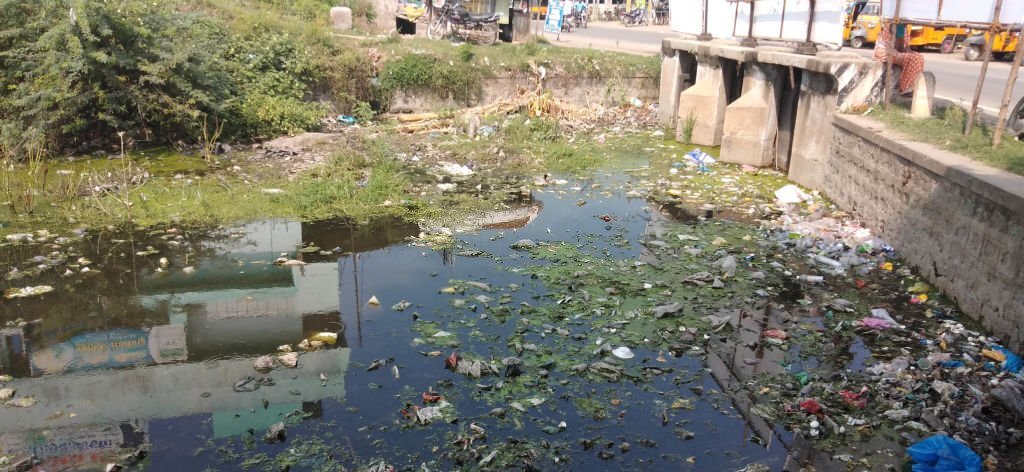Mother Nature has her unique ways of processing wastewater naturally. However, the increasing human population around the globe has made it extremely difficult for her to handle the excessive amounts.
Lack of wastewater treatment poses a significant threat to freshwater bodies such as rivers and streams. The impact is much worse in developing countries, as over 80% of wastewater is discharged in these countries. In developed nations, advanced wastewater treatments purify water and send it back to the environment to keep Earth safe and flourishing.
This article discusses the significance of wastewater treatment plants and how they can benefit humans and the environment.

The Importance of Wastewater Treatment Plants
Wastewater contains different toxic compounds harmful to human health and natural ecosystems. Wastewater treatment plants help purify the water by removing toxic impurities and reversing the situation in developing countries.
Unclean water can significantly affect health in different ways. It is responsible for 1.7 million deaths annually, of which 90% occur in developing nations. Water-related diseases such as cholera and schistosomiasis are widespread in these regions, where only a tiny fraction of domestic and urban wastewater is treated before being released into the environment.
As wastewater treatment sends purified water back into the water bodies, it protects fish and other aquatic life. Toxic compounds like nitrogen and phosphates in the wastewater enter the water bodies and release toxins, leading to oxygen depletion and dead zones where aquatic life cannot exist.
Sustainable Development Goal 3
World Health Organization (WHO) released Sustainable Development Goal 3 with targets including:
- Combating hepatitis, water-borne disease, and infectious diseases by 2030
- Reducing deaths caused by hazardous chemicals from water, air, and soil pollution by 2030
Improving water quality by minimizing the release of hazardous chemicals and reducing the amount of untreated wastewater by 50% is one of the fundamental targets to achieve globally by 2030. This also includes recycling and safe use of water, which can happen only through effective wastewater treatment plants.
In 2010, the United Nations recognized the right to safe and clean drinking water and sanitation as essential for enjoying life and all human rights to their maximum.
Best Wastewater Treatment Practices
Freshwater is a scarce resource, making wastewater management an essential alternative source of water supply. Considering the level of treatment, the water can be used for industries, agricultural irrigation, and direct consumption.
Urine comprises 88% of the nitrate and 66% of the phosphorus needed for plant growth. With the advancement in wastewater treatment technology, nitrate and phosphorus can be recovered from sewage waste as a by-product and used as high-quality manure.
Partially treated water contains nutrients with a lower risk of chemical contamination. Thus, it can reduce the requirement of manure and fertilizers for healthy crop production and benefit the farms while ensuring food security for the public.
Partially treated water can also benefit industries and factories as they do not require water of drinking quality.
Moreover, organic compounds in the sewage can be a great source of biogas which can further be exploited to generate electricity. This kind of technology has been implemented in many US cities and has proven to be energy efficient and financially affordable.
Centralized vs. Decentralized Wastewater Treatment Plants
A centralized wastewater treatment solution involves an integrated process of coagulation, flocculation, sedimentation, filtration, and disinfection in a central location. The treated water is then distributed through networks. Investment in such a facility is expensive, labor-intensive, and time-consuming. Therefore, decentralized wastewater treatment plants come into the picture as cheaper alternatives.
Decentralized plants are smaller and individual wastewater treatment plants. They can be set up easily in urban and rural areas, including residential communities and industrial regions, to meet varying degrees of the operational scale. The most significant benefit of this system is that it can treat water directly at the source.
Bioremediation
This is another decentralized water treatment solution that complements wastewater treatment plants. Bioremediation uses fungi and bacteria to break down pollutants and hazardous effluents. It is a traditional method used to clean up oil spills.
How to Increase the Use of Wastewater Treatment Plants
Although setting up a decentralized wastewater treatment plant requires a smaller investment, the pricing may be a barrier for many. So, it is necessary that the price of treated water is reasonably less than readily available drinking water.
One of the recommended ideas is that generating nutrients and biogas energy from sewage water could offer a profitable financial model. This can cover the cost of setting up plants and thereby open doors to their wider acceptance by people.
As wastewater continues to rise, it is critical to invest in appropriate wastewater treatment plants that help rejuvenate freshwater bodies and groundwater resources.
Invest in the Best Wastewater Treatment Plants
Cleantech Water is a leading wastewater treatment plant manufacturer and supplier in India. Through several years of experience and expertise, we provide the finest solutions, including testing, monitoring, analysis, and remedial measures to treat wastewater efficiently.
With the fundamental goal of serving humanity and the environment, we offer state-of-the-art sewage treatment plants and effluent treatment plants for industrial and domestic purposes. Our plants are easy to set up, execute, and maintain while providing you with a high return on your investment.
Even if you are looking to operate and maintain your wastewater treatment plant, we are here to help. Our team of experts provides 24/7 monitoring, on-call assistance, and testing to meet your unique facility requirements.
Get in touch with us today for a free consultation and begin contributing to Mother Nature.

